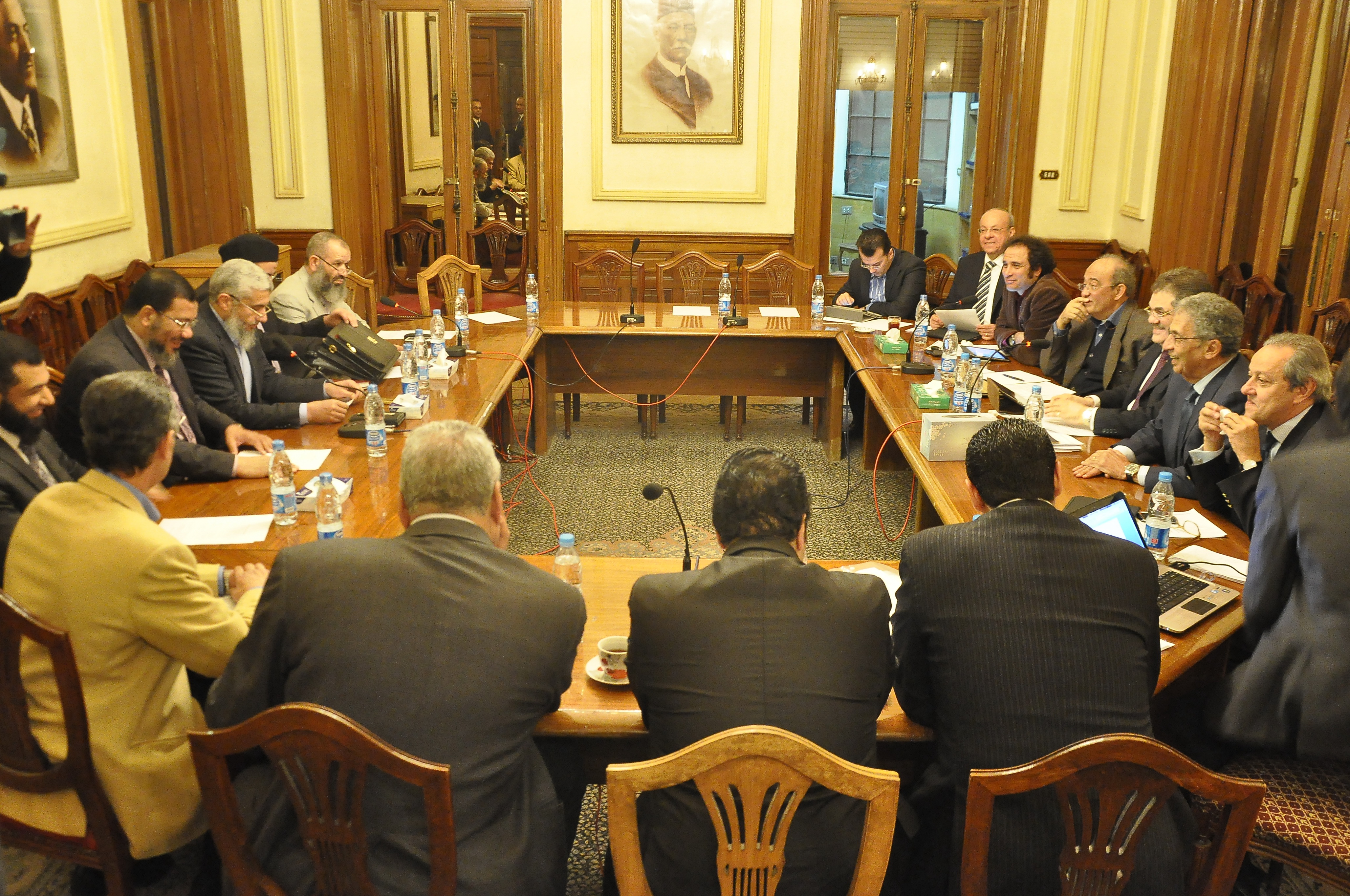Mark this third week of March 2007 as potentially a historic moment of clarity on one of the most important political questions in the contemporary Arab world: How will the troubled, turbulent Middle East make the transition from dictatorship and autocracy to more democratic, accountable systems of government, while Islamist movements are the most popular forces around? The answer seems to be, through coalition governments and transitional governments of national unity in which Islamists have a major but not the totally defining role. In recent months, Islamists and Arab governments have confronted one another politically and occasionally violently. Now, having fought each other to a standstill and shown themselves to enjoy roughly equal power in society and among foreign supporters, they are trying a different approach, that of national unity or coalition governments. The developments taking place in Palestine and Lebanon are the most interesting examples, and should be watched closely. This may be the most important political test that Islamist movements have experienced in the Arab world in their modern history: trial by the fire of incumbency and accountability. We have had very few examples of Islamists winning power democratically, and being given the chance to exercise power by governing freely. A few cases of Islamists taking office at the local level can be studied, and they show mixed results. Other examples include Islamist ministers in governments in Jordan, Lebanon, Yemen and other countries, and their experience is also mixed. Nowhere in the Arab world have we had a comparable experience to the ongoing incumbency of the Justice and Development Party that leads the Turkish government. There, the party’s Islamist credentials and rallying cry have been put to the test of actually governing, and responding to national needs. The party continues to adjust to the reality of incumbency and national accountability, seems likely to win another election, and will probably see its leader become president soon. Arab Islamists will now be subjected to the same test and reality check. Hezbollah in Lebanon may be on the verge of agreeing with its political foes the formation of a national unity government that gives it and its allies (including some Christians) the ability to block major government decisions. In return for this power, if indeed a new government is formed on this basis, the party will find itself pressured to deliver practical answers to daily issues high on the priority list of ordinary citizens. The situation involving Hamas in Palestine is more clear-cut. The movement has just announced the formation of a national unity government with Fatah. It hopes, through this, to unblock the foreign financial boycott, and thus have more money with which to govern normally. Both these Islamist parties had gained power and respect over the years, essentially by catering to constituencies that formed a minority of the population, and by resisting Israeli occupation and aggression. Hamas and Hezbollah both have experience in local politics and service delivery, but less so at the national level-whether because they were not allowed to govern properly thanks to outside opposition or opposition from a domestic majority, or because they only controlled a small number of ministries. They now must make two crucial transitions that they had toyed with in recent years-from dabbling in politics to full national governance; and from externally directed military resistance to providing social, political and economic services at home. Both parties have met fierce opposition in making this change, from three principal adversaries: domestic opponents among their fellow citizens; the Israeli government and people; and the United States and other leading Western governments. These are formidable odds to work against, but Hamas and Hezbollah have made headway and are now moving into coalition governments. They continue to succeed because they are credible at home, their domestic opponents are often corrupt and incompetent, and their foreign foes are grossly unfair and inconsistent. Two aspects of the Islamist transition to mainstream democratic governance are important to watch. First, it is much more important to assess the local verdict on the Islamists in government than to ask what Israel, the US or Europe feels about all this. Second, at the domestic level, the Islamists will be judged primarily by their record in formulating and implementing sensible policies and responding to their constituents’ needs, rather than in merely expressing popular grievances and repeating the ills of imperialism and the injustices of Zionism. The weakness of Hamas, Hezbollah and other mainstream Islamists is their lack of coherent and detailed policy programs and practicable answers to the pressing national challenges of Lebanon, Palestine and other Arab societies. These include quality and relevant education opportunities, job creation, investment promotion, equitable and sustainable economic growth, environmental protection, human rights enforcement, and regional peace and stability, among other issues. Rockets, rifles, resistance, and communal self-assertion brought Hamas and Hezbollah to the point where they are now entrusted with a major share of governance. They must quickly show that they have answers and policies for the socio-economic and political issues that will improve the well-being of all their citizens. Rami G. Khouriwrites a twice-weekly commentary for THE DAILY STAR.

